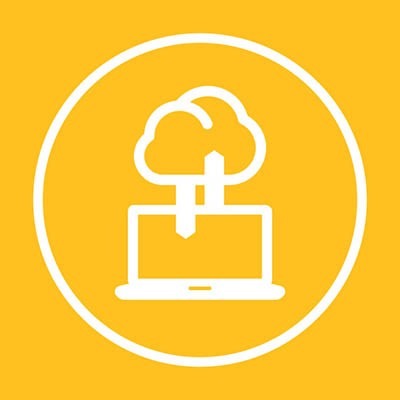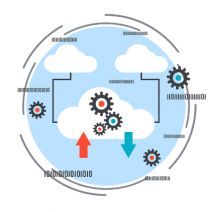Microsoft offers solutions that have a proven history of being assets when businesses adopt them - but like most any solution, what may fit well for one, may not fit well for all. Here, we’ll consider one of Microsoft offerings to help you determine if it is the right solution for your needs and requirements.
Virtualization has opened up a lot of doors for businesses who want to make their operations more flexible, but your business can’t simply implement it all willy-nilly. You need to have specific requirements in mind for your cloud hardware. This week’s tip is dedicated to helping you make the best decisions possible regarding the adoption of virtualization for your business’ needs.
No matter how big a business is, it has to leverage at least some IT in order to be efficient. Unfortunately, some organizations are reluctant to implement new technology if they don’t seem to need it immediately. What these businesses don’t know is that the reason they typically don’t implement new solutions--saving money--is in direct conflict with what the solutions are designed to do in the first place.
Evernote is a neat note-taking app that many users have found works for them, as it can be used to keep notes organized in a better way than a traditional notebook. With new features that can offer you plenty of functionality, Evernote might just be the note-taking solution you’ve been looking for all these years. This week’s tip is dedicated to one of the best new features of Evernote: templates.
As the cloud is being utilized by more individuals and organizations to meet their computing needs, more very important data is hosted outside of local computer networks. As a result, people utilize cloud storage for their backup and recovery strategies. In fact, it has become the primary use of cloud-hosted platforms, but just how does backup and recovery from these collaborative cloud-based platforms work?
Cloud computing is a major player in the way that businesses are approaching their daily operations. This might bring into question whether or not your organization is actually using the cloud in the first place, but one thing is certain--if you haven’t implemented the cloud yet, it’s difficult to not do so, especially considering how great it can be for your company.
Technology is a necessity for businesses everywhere if they are to reach their goals, which are themselves influenced by the technology that businesses have access to. If this cycle is to continue, a business needs to establish what is expected to come next in the line of IT innovation. From the looks of it, businesses are currently placing convenience in high regard.
Technology is a big deal for the modern business. This doesn’t mean just your organization’s workstations and servers either. Today there is a big shift in the way that small-to-large businesses get the computing resources they need to succeed. As cloud-based offerings continue to offer organizations computing options they haven’t had before, one hosted solution stands out for the value it presents: file sharing.
Are you still hesitant to adopt cloud computing for your company’s IT needs? For the cautious business owner, adopting new technologies isn’t a move that’s to be made lightly. However, cloud computing is much more than a passing fad. In recent years, the cloud has become such a reliable and efficient tool for businesses that it deserves your attention. Take for example these three misconceptions about the cloud.
Misconception 1: The Cloud Isn’t Secure
It’s understandable why business owners are hesitant to store their sensitive data in the cloud. After all, stories of hacks against major corporations appear in the headlines all too often. Although, it’s important to keep in mind that these sensational stories don’t accurately reflect the state of cloud security today. In fact, studies show that in some instances, the cloud is actually more secure than storing one’s data on-premise. This proved to be the case in a study by Schneider Electric where 40 percent of participants were found to be hosting their security applications in the cloud, and 45 percent of participants said they are likely to move their security application to a cloud platform.
That said, you should still exercise caution when selecting a cloud platform to host your company’s data. It’s prudent to perform your own analysis of costs, opportunity, and risk, as well as to be wary of exaggerated security claims by cloud providers. One way to go about this is to check with vendors for references. They will be able to tell you what cloud providers are reliable, and which ones tend to overpromise.
Misconception 2: The Cloud Costs Too Much
In the past, a move to the cloud may have been perceived by budget-minded business owners as too major of an expense to commit to. Today, the cloud computing market has become so varied that you’ll end up with several different estimates when you shop around with different cloud providers. Therefore, it’s worth it to be diligent when shopping for a cloud provider.
Then there are the cost benefits you should consider that extend beyond the initial price tag of cloud migration and the subsequent monthly fees. This includes opportunity costs such as time to market, disaster recovery savings, and customer satisfaction. Also, a business owner shouldn’t overlook finally being able to avoid paying for on-premise maintenance, remediation, hardware costs, application upgrades, and the list goes on.
Misconception 3: The Cloud Doesn’t Offer Enough Flexibility
If you’re hosting your data and applications in-house, then you know firsthand what it takes to make a modification like an enhancement to your hardware or software. Often times, such an IT initiative will be expensive and take considerable time to implement. Now imagine needing to make the same performance enhancement to an infrastructure that’s hosted in the cloud. With the cloud, when you need more computing resources from your provider, it’s as easy as making a phone call or submitting a ticket. The time and money saved by simply requesting your cloud provider make the adjustments on their end will free up resources for you and your IT staff that can be better invested elsewhere.
Do you still have reservations about the cloud? If so, then you owe it to yourself, and your bottom line, to discuss these roadblocks with the IT professionals at Techworks Consulting, Inc.. You may be surprised to learn that the cloud can do exactly what you need it to do and more. To have a conversation about the cloud, call us today at (631) 285-1527.
A connectivity to the cloud is a great opportunity that your organization can leverage to its advantage, but only if it’s done well. No two businesses will have the same exact configuration when it comes to cloud, as the needs and responsibilities that are accomplished through that cloud solution will change. This week’s tip is dedicated to helping you discover which cloud solution is right for you.
The cloud has embedded itself in the way that modern businesses manage their technology. By providing a way to access important data and applications on a whim, the cloud has made it easier than ever to stay productive both in and out of the office. How does your business plan to leverage the cloud in 2016?




















